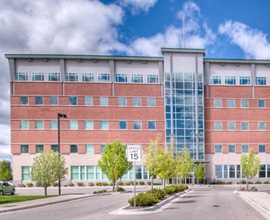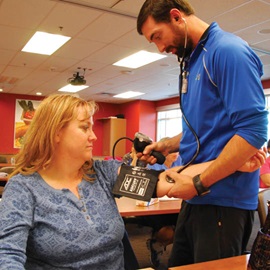Dr. Pate’s Prescription for Change
St. Luke’s and Lifestyle Medicine: ‘… real education and activation’
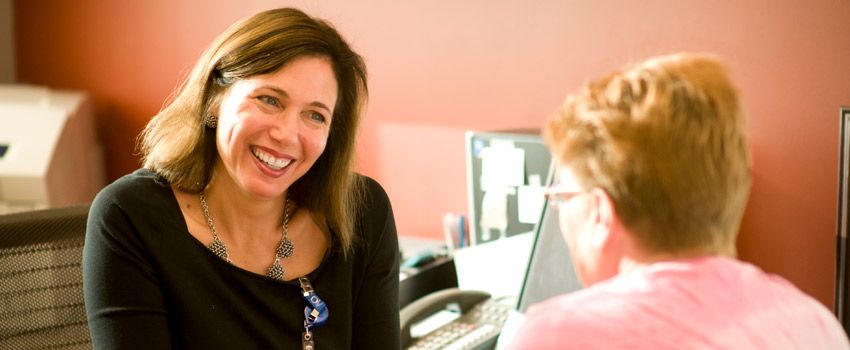
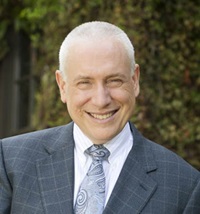
You may not have heard of “lifestyle medicine.”
It is a relatively new specialty that focuses on a collaborative model of care to make interventions in the treatment and management of diseases that are related to lifestyle choices (e.g., diet, activity, tobacco and alcohol use) and to prevent those diseases through lifestyle management.
And while the specialty may be new, St. Luke’s has already established itself as a leader in the field. I have shared reports about some of these efforts, including our Metabolic Syndrome Clinic, previously on the blog. Here with the latest is St. Luke’s Communications Coordinator Chereen Langrill.
- David C. Pate, M.D., J.D.
Each year in January, consumers are bombarded with messages about how to achieve New Year’s resolutions. Weight loss products and programs, fitness equipment, gym memberships and tobacco cessation products all promise to help people reach their goals.
But what comes next? If someone successfully reaches a goal, where are the products and programs that help them maintain results?
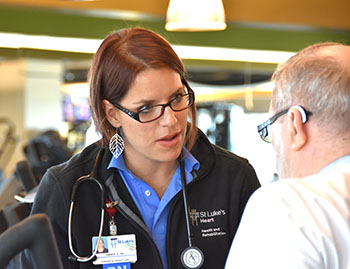
Lasting change requires a shift in behavior and thought, and that’s the basic idea behind lifestyle medicine. It’s a concept Dr. Jennifer Shalz is cultivating at St. Luke’s Heart Health and Rehabilitation, where she serves as the medical director.
“Lifestyle medicine is about real education and activation,” Dr. Shalz said. “Giving people all the tools they need to make behavior change.”
The American College of Lifestyle Medicine defines it as the use of interventions in the treatment and management of disease; lifestyle medicine uses a collaborative care model that incorporates allied healthcare professionals to provide treatment through medication, coaching and education.
According to the World Health Organization, 80 percent of the world’s non-infectious diseases could be prevented if these four lifestyle practices were followed:
- Healthy diet
- Physical activity
- Tobacco avoidance
- Alcohol only in moderation
As the connection deepens between modern lifestyle and the impact on disease, physicians are being called upon to help patients take control of their health. In October 2016, the American Heart Association made a statement calling for physicians to be adequately trained to help patients make lifestyle changes.
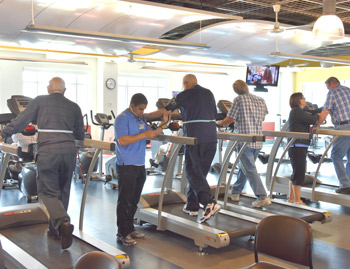
Dr. Shalz plans to be among the first physicians in Idaho to become board certified in lifestyle medicine when the American Board of Lifestyle Medicine begins offering certification in October 2017.
“Changing habits is hard. Providers who specialize in lifestyle medicine serve as a consultant and support for their physician colleagues who don’t have the time, allocated resources or possibly even education from their prior medical training on evidence-based nutrition, exercise prescriptions and behavior activation techniques,” Dr. Shalz said.
Star resident Mark Bryant, 42, understands the challenges that come with changing habits.
Bryant lost more than 260 pounds through gradual habit changes that started by cutting back his daily calorie intake. He gradually introduced healthier habits, such as eating more vegetables and exercising. Although he had successfully lost weight on his own, he later discovered that he had a heart valve problem, and on Sept. 1, 2016, he had open heart surgery.
He joined St. Luke’s Heart Health and Rehabilitation Clinic and completed the program Jan. 26.
Bryant has graduated from the rehab program, but he isn’t walking away from the clinic. As a graduate, he has the opportunity to continue exercising at the facility.
“The thing I like about it is that I’m surrounded by other people who have been through the same thing I’ve been through,” Bryant said. “And the staff is great because of their energy.”
Bryant was immediately sold on the clinic’s approach because of the quality interaction he had with Dr. Shalz. She listened to him intently during their first meeting and then made recommendations based on the information he shared during their conversation.
“The beautiful thing about that program is you go in and sit down with a doctor on day one,” he said. “That way, they know how to tailor the program to your level. I was so impressed.”
Several programs under the guidance of Dr. Shalz already follow a model similar to the concept of lifestyle medicine. For example, Dr. Shalz is also the medical director for the Tobacco Cessation Clinic and the Metabolic Syndrome Prevention Program; the two programs focus on lifestyle changes and give people the tools needed to successfully stay off tobacco and maintain a healthy weight.
“This is a similar model to what we are doing at St. Luke’s with our cardiac and pulmonary rehab programs,” she said. “A vital part of the model is having an interdisciplinary staff all co-located and working as a team for the benefit of the patient.”
Dr. Shalz and the cardiac rehab program team have worked steadily over the past several years to build an end-to-end care model that anticipates the directions a holistic approach might take. The lifestyle medicine department would operate on a model similar to that of Heart Health and Rehabilitation. Physicians would refer patients to the program (cardiac and pulmonary patients already follow this process), which would encompass cardiac rehabilitation, pulmonary rehabilitation, tobacco cessation and the metabolic syndrome program in addition to others.
“We are ahead of the curve in many ways, because of the rehab clinic,” Dr. Shalz said. “It’s reasonable to look at programs like this if we can be cost-effective.”
About The Author
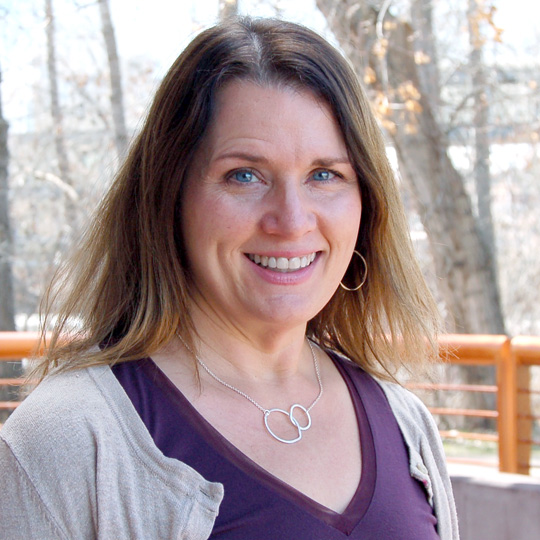
Chereen Langrill was formerly a communications coordinator for St. Luke’s Health System.



